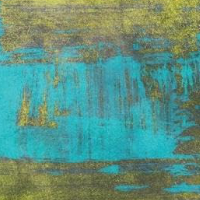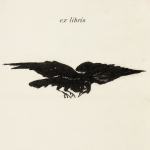2026
Bengü Demirtaş's analytical review of Joseph Conte's latest book, takes the reader on a blow-by-blow breakdown of Transnational Politics in the Post-9/11 Novel's central arguments. While praising the book's positives, Demirtaş reveals the difficulty both Conte and the transnational novelists he examines encounter in 'representing the unpresentable'.
2024
Research-librarian John-Wilhelm Flattun reviews Tactical Publishing: Using Senses, Software, and Archives in the Twenty-First Century by Alessandro Ludovico. In the digital era of reading and writing — where new forms are constantly emerging old traditions wither away — how can we navigate the ever-changing landscape of publishing?
A survey of Gaddis’s known and archived unpublished creative work in poetry and drama, from a parodic Elizabethan play and the complete script of Once at Antietam to a full western film screenplay and a year of failed pitches for TV drama. Each entry contains archival location information, historical information, description and analysis of the archived work, and discussion of any connection to the eventually published fiction.
Elliot Yates examines Gaddis’s first corporate writing assignment, with the company Textron, which seems to coincide directly with his first conception of the plot for J R. Textron was one of the first US corporations to explicitly pursue conglomerate “diversification” through buying up seemingly unrelated businesses, and Yates shows how this not only helped generate the plot of J R, but functions as a key to understanding its formal design.
Further memories from yet another student of William Gaddis during the time when WG taught at Bard.
David Ting excavates the archived compositional history of Agapē Agape to test what we can learn from the marginal annotations in Gaddis’s working library, focusing on his copy of Susan Stebbing’s Philosophy and the Physicists. Ting finds Gaddis testing his own ideas against those of Stebbing and her sources, while making outward connections between this technical material and his literary reading in Plato and Faust. Illuminating the novel’s chronological evolution, Ting also provides us a case study in tracking how authors use their reading as a “means of invention.”
Kate Michelson Goldkamp surveys the Juvenilia preserved in Gaddis’s archive, finding, among other things, early prefigurations of his “delight[] in the macabre” in some illustrated mini-stories, hints of the boy JR's worldview in studies of US geography, and doodles that prefigure some of the published fiction’s hand-drawn illustrations.
Translator Francine Ozaki reads The Recognitions through the overarching debates of twentieth-century translation theory, finding the conflict between Wyatt’s and Otto’s handling of Forgery, Originality, and Authenticity illuminating the concerns of today's professional translators. Questions of credit, treachery, allegiance, payment, and dependency are so fully addressed in the novel that translators and translation theorists should be reading it to help make sense of their own artistic and professional roles.
Scott Zieher offers some creative non-fiction in praise of perhaps Gaddis’s least-lauded publication: the lavishly illustrated and sample-provisioned “masterwork of printed ephemera” A Pile Fabric Primer. How did this mysterious document come to be, and what does it tell us about the creative writer's working conditions?
After noting how J R was a reflection of postmodern society and antiheroic traditions in America in the 1970s, Lalita Kashoba Mohan signals a similar postmodern turn in her homeland, India, and other countries "whose economic development is now following America’s earlier path."
Cole Fishman argues that Gaddis should be recognized for his contributions to philosophy, no matter what the "disciplinary gatekeepers" think.
Jon Fain studied creative writing with William Gaddis at Bard College between 1976 and 1978, during Gaddis’s first university teaching job. It didn’t go perfectly, as Fain discusses in this retrospective, which includes a letter of Gaddis’s writing-feedback.
This roundtable discussion took place online in August 2023: it has been lightly edited for focus and clarity. The Chair was Ali Chetwynd, with Jeff Bursey, Victoria Harding, Chad Post, Edwin Turner, Chris Via as speakers. More about each participant, including links to their individual projects, can be found in their electronic book review author biographies.
Rochelle Gold brings Gaddis’s early critique of mid-century capitalism into contact with current criticism by Alan Liu and others, who suggest that humanists must bring their own questions, interests, and values to the table, rather than acquiescing to the economic logic of post-industrialism.
A personal recitation of Paul Ingendaay's career as a "lifelong" associate editor with the Frankfurter Allgemeine. Ingendaay also shares with us a recollection of the slow, belated but definitive situation of Gaddis's lifework in the German literary canon.
A total solar eclipse occurs when the moon slides between the sun and the Earth, aligned precisely so that the lunar body appears to block the solar surface entirely from view. In this autobiographical essay, Steve Tomasula, an Illinois-based writer known for collaborative image-text assemblages, from TOC to Ascension, that convey how and why humans’ existential sense of reality can vary so radically across time and space, recalls an April 2017 Midwestern road-trip pursuing the path of the total eclipse. In Tomasula’s account of the totality, the multiple meditations surrounding this predictable celestial event only intensify the sublimity of the shared experience and its disruptive systemic effects.
Mark Madigan shares a photograph of William Gaddis, captured by John Puleio, during one of his largely improvised lectures.
Lisa Siraganian, the J. R. Herbert Boone Chair in Humanities in the Department of Comparative Thought and Literature at Johns Hopkins University, applies her expertise in legal theory to Gaddis’s penultimate novel. Following discussions on business law and the controversial notion of corporate personhood, Siraganian reads Gaddis's fourth novel to explore how a business-dominated legal culture transforms our conceptions and narratives of the individual person.
Written by William Gaddis in the mid-1940s, “Faire Exchange No Robbery” is a short, mock-Elizabethan play in verse, about early poetry anthologies and the death of Christopher Marlowe. Jeffrey Severs brings this unpublished document to light, finding in it the germ of Gaddis’s career-long interests in art’s relationship to commerce, and in the significance of contracts.
Jack Williams, after noting how the "depiction of U.S. imperialism in The Recognitions has received scant critical attention," gathers a selection of concrete descriptions in Gaddis's first novel of the "built environments" in the New York City and Paris sections, then demonstrates how these settings reflect and expand on the novel’s multi-pronged critique of postwar consumer culture.



